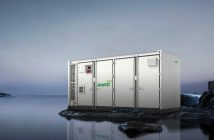As part of the contract, SPS will employ leading-edge solar and battery technologies to power key infrastructure that forms part of Phase 2B & 2B+ of the OMMP, for a duration of 25 years.
Phase 2B & 2B+ of the OMMP includes a new pipeline that will transport bulk raw water from the Flag Boshielo Dam to reservoirs across the Northern Limb of the Bushveld Igneous Complex. From there, 40% of the water will supply mines, and 60% will be treated at water treatment plants in Mokopane and Sekuruwe, providing potable water to 140,000 community members and addressing Mokopane’s water shortfall.
The solar energy capacity will start at 16 MWp for phase one, increasing over two further phases over the next 10 years to 23 MWp in the final phase. The BESS, with a capacity of 13.3 MWh, will ensure a reliable and sustainable power supply for the three pump stations under construction, each to be equipped with two 3.5 MW pumps. The RES will provide all operational and auxiliary power to the three pump stations, as their current locations prevent connection to the utility grid.
Phase 2B and 2B+, which includes the RES and the construction of the bulk raw water pipelines, pump stations, reservoirs and two water treatment works in the Northern Limb, is expected to be completed within 28 months following the final contracting.
Notably, SPS’ RES will be one of the largest off-grid solar initiatives in South Africa to date, providing electricity to underpin water distribution.
Valued at R800 million in its initial investment, SPS’ contract is an integral part of the larger OMMP, which is optimising and accelerating the completion of the Government-conceived Olifants River Water Resources Development Project (ORWRDP) and expanding its scope to include potable water infrastructure.

















